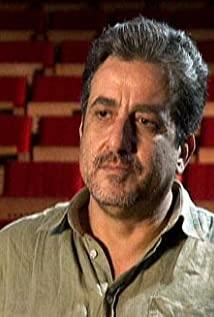All this is simply evil.
On the other hand, there is indeed proof that Islam is indeed of the same origin and similar culture as Judaism (the more mysterious side). The amazing thing is, who has been portrayed as evil and who is still prevalent? Aren’t they all raccoon dogs? When religion tries to control life, it is the highest evil.
Going back to the movie itself, this is really a wonderful process. It's hard to believe that a room, a few actors, simple pictures and furniture, and long facial close-ups, I watched it with interest (and angrily). The film is full of emotional logic, rich in details, and full of tension. In a limited space, it is easy to observe a variety of complex relationships, a variety of different types of emotions, a variety of small actions and even character positions, all of which are concealed, clean, and not muddled and expressed at the right time. Out.
At the beginning, only the couple's stalemate remained, which was equivalent to the opening statement of the movement. The witnesses were slowly introduced and the most interesting chapter of the film began.
The first witness, the heroine's brother. He defended the man without hesitation. He tried to stand on the side of patriarchy, but he couldn't give up emotionally. He had to admit the pain of his sister. Or it can be understood this way—for a Chinese, it’s too familiar—even if he felt the pain of her sister, he chose to defend the patriarchy rather than the kinship of flesh and blood.
The second witness, the sister of the heroine's friend, how she sympathizes with the heroine, but she cares more about her situation. She is also full of admiration for the heroine's lawyer (I think it's the actor based on the drama), trying to get his attention. But so far, she was severely humiliated by the man's brother, the representative of religion and the representative of patriarchy. Just because she is a single woman.
The third witness, the heroine's girlfriend, bluntly said that her bold protest can almost be seen as a satire of this ridiculous court. I understand that the heroine finally laughed presumptuously for the first time in the yelling of her girlfriend.
The fourth and fifth witnesses, neighbors and couples. A typical representative of a model couple in Israeli society. The husband controls everything, and the wife only agrees. The neighbor’s husband also chose to defend the man without hesitation. The neighbor’s wife was a subsidiary, fearing that his husband would take care of the children and worked hard. He gave birth to 4 children for the husband’s wishes, and aborted 6 births for a boy. To feel happy. She also sympathizes with the heroine's pain, because she also has such pain. The difference is that she endured all this through self-anaesthesia and grievances. In her opinion, there is only this way to live, so she can't help but persuade the heroine to adopt this way.
The sixth witness, the man's church member. While defending the man, he accidentally revealed that the man is not the saint everyone likes to defend. But this person, he still has some not so good-looking covets for the heroine.
The seventh witness, in addition to defending the man, finally succeeded in turning the topic into a tarnishment on the heroine's personality.
The heroine’s silence and restraint at the beginning, the black clothes wrapped like a black widow, the meticulous hair, to her some irrepressible small movements, the bright red nails of the sandals, and the big red clothes that burst out brightly here. The court opened the hair. The judge couldn't stand it anymore.
What's interesting is that the man's defense priest, his brother, from the beginning to the end of the defense are all salty and jealous to promote the male side, lower the female side, until the last debate was completely naked and morally attacking the heroine. The heroine's defense attorney cleverly digs out the real facts every time the witnesses try to cover up the bad relationship between their husband and wife. He was also the only person who didn't wear a kosher cap.
In the end (5 years later!) the hostess got the divorce she wanted. In the court, the judges demanded the gesture and language of the man and the woman, it was a kind of grace that the man had bestowed the hostess. But the man regretted it again. This place is simply wonderful, and it completes the final blow of the director's story. He repents not because he still loves the heroine, he just needs to have the chastity of the heroine, even if she is divorced, she still needs to be subordinate to him physically.
It is a pity that this is indeed the true meaning of the beginning of things like marriage.
ps, when you look at this movie, of course, the first thing that comes to mind is "A Parting". As a close and opposed religious culture, it is only natural for the same subject of divorce to be discussed together. But obviously, the director's focus is different. Maybe it is the country's poor political openness, maybe it is the narrative style, maybe the director himself is a female, which is telling about empathy, and "The Litigation" expresses a deeper force.
pps, what is the relationship between Israel and France? Why are the characters interspersed, especially communicating French in private?
View more about Gett reviews











